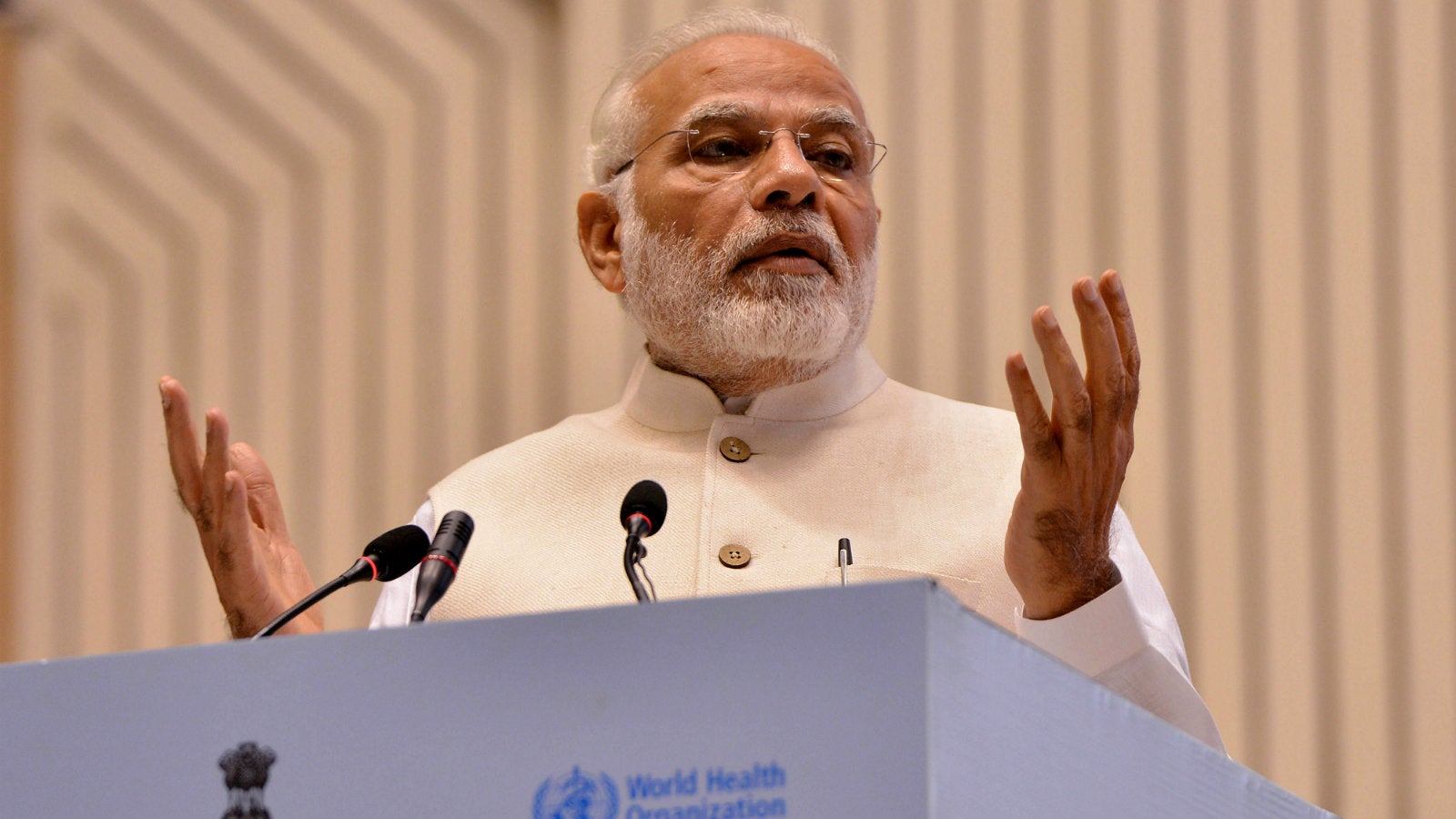Indians are not buying Modi’s tall stories about the economy
In less than a year from now, Indian prime minister Narendra Modi will be seeking re-election. While his government takes credit for India being the world’s fastest-growing major economy, voters’ perception isn’t as rosy.


In less than a year from now, Indian prime minister Narendra Modi will be seeking re-election. While his government takes credit for India being the world’s fastest-growing major economy, voters’ perception isn’t as rosy.
More Indians now than any time before in the last four years feel that the economy has worsened, according to the findings of a survey by the Reserve Bank of India (RBI). Results of the poll, conducted among 5,077 households in Bengaluru, Chennai, Hyderabad, Kolkata, Mumbai, and New Delhi, showed that the public’s view of employment, too, has weakened from three months ago. And rising prices are adding to their woes.
“…sentiments on the general economic situation for the current period worsened from the previous round as 48% of the respondents felt that the situation had deteriorated,” the RBI said in its report released on June 06.
Over half the respondents also believe the economy will either remain the same, or worsen over the next one year.
A lack of job creation has been a lingering concern throughout Modi’s tenure. The dissatisfaction peaked last November, but has slightly improved since then.
“While households remained pessimistic about the current employment situation, their sentiments were marginally better for the future,” the RBI survey found.
Amid all this, price rise is the last thing consumers want. But the survey results underlined that “prices continued to remain a concern for households, and their outlook for the next year was largely unchanged.”
In 2014, Modi rode the wave of public anger against inflation, but in every RBI survey since then at least 70% of the people have complained about rising prices. The number spiked in 2017, and has consistently been above 80% for over a year now.
Modi has always pitched himself as a man who means business. “You are aware of the changes we have undertaken and the improvement in our sovereign ratings. More valuable than these numbers is the fact that the Indian people have welcomed the government’s reforms,” Modi said in January 2018, addressing global leaders at the World Economic Forum.
Since then, the Indian economy has clocked its slowest growth rate in four years, foreign portfolio investors have pulled out more dollars than they did in the year of the last global financial crisis, the rupee has lost a lot of its sheen, and most recently, ratings agency Moody’s has warned of a downgrade if India’s finances are stretched beyond its target.
Modi will now have to double up efforts to ensure that voters buy his narrative before the elections next year. A huge perception battle lies ahead.